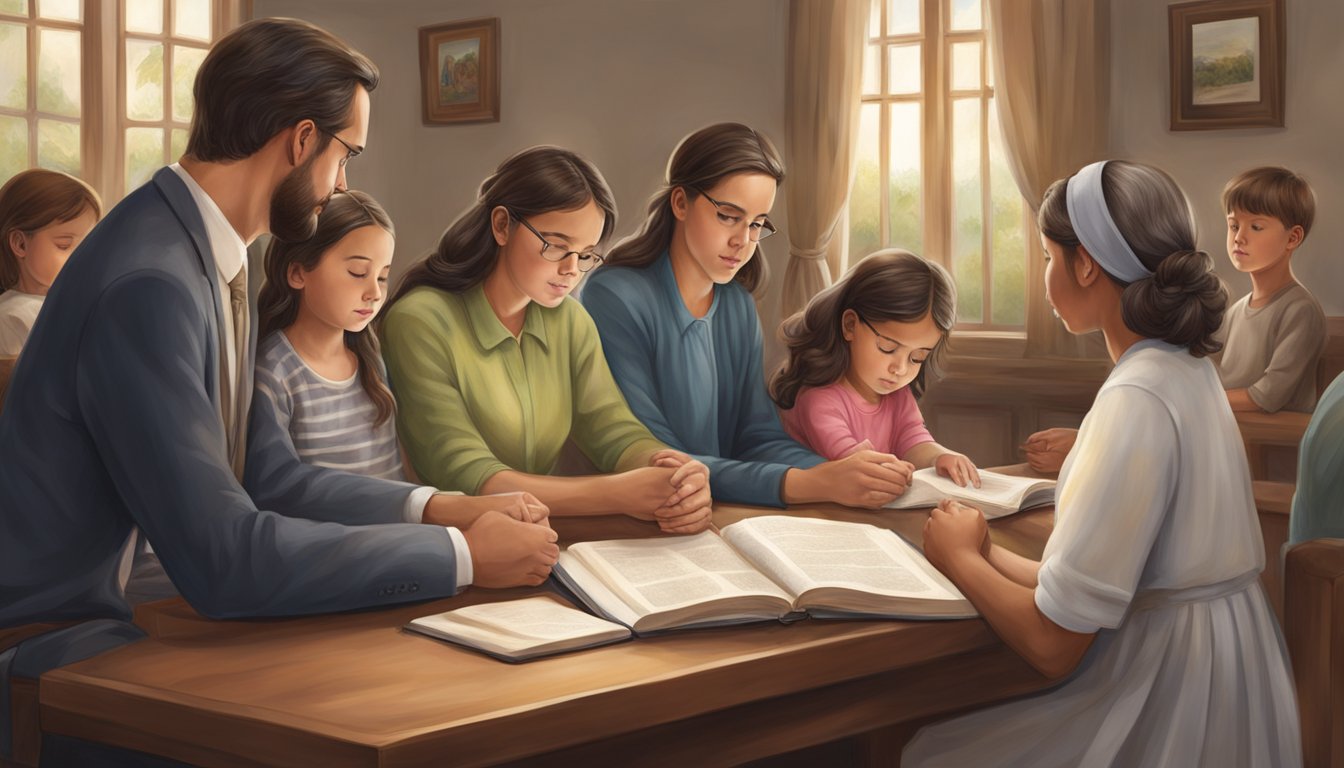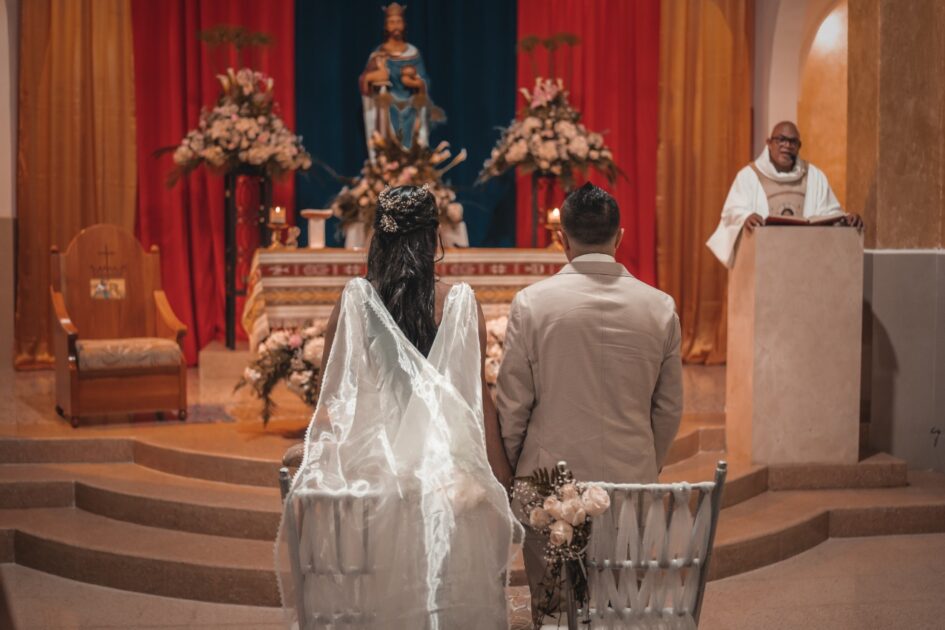Mormonism is a religion that emerged in the United States during the 19th century. Its followers, known as Mormons or Latter-day Saints, believe in the teachings of the Book of Mormon, which they consider to be a second witness of Jesus Christ, along with the Bible. However, there is often confusion as to whether Mormons are Christians.


The answer to this question is not straightforward. While the core beliefs of Mormonism are similar to those of Christianity, there are some significant differences that set them apart. For example, Mormons believe in the existence of additional scripture beyond the Bible, including the Book of Mormon, the Doctrine and Covenants, and the Pearl of Great Price. Additionally, they believe in the concept of continuing revelation, meaning that God can still communicate with humanity through modern-day prophets.
Despite these differences, Mormons unequivocally affirm themselves to be Christians. They consider themselves to be followers of Jesus Christ and worship God the Eternal Father in His name. However, their unique beliefs and practices have led to debates and discussions over whether they can be considered part of the larger Christian community.
Key Takeaways
- Mormons consider themselves to be Christians, but there are significant differences between their beliefs and those of traditional Christianity.
- Mormonism is based on additional scripture beyond the Bible, including the Book of Mormon, the Doctrine and Covenants, and the Pearl of Great Price.
- Mormons believe in the concept of continuing revelation, meaning that God can communicate with humanity through modern-day prophets.
Origins of Mormonism

https://www.youtube.com/watch?v=bpq9th21VHU&embed=true
Mormonism is a religious tradition and theology of the Latter Day Saint movement of Restorationist Christianity. Its origins can be traced back to the early 19th century in Western New York, where Joseph Smith, the founder of the religion, had a vision of God the Father and Jesus Christ. This experience, known as the First Vision, was a pivotal moment in Smith’s life and led to the establishment of the Church of Jesus Christ of Latter-day Saints (LDS Church).
Joseph Smith and the First Vision
In 1820, Joseph Smith was a young man who was searching for answers about the nature of God and religion. He had grown disillusioned with the various Christian denominations of the time and was seeking a deeper, more personal connection with the divine. According to his own account, he prayed to God for guidance and was visited by both God the Father and Jesus Christ in a vision. This experience, known as the First Vision, was the beginning of Smith’s prophetic career and the foundation of the LDS Church.
The Book of Mormon and Other Scriptures
One of the key tenets of Mormonism is the belief in additional scripture beyond the Bible. According to Smith, he was visited by an angel named Moroni who showed him where to find a set of golden plates buried in a hill in upstate New York. These plates, which Smith translated with the help of divine revelation, became the basis for the Book of Mormon, a sacred text that tells the story of a group of Israelites who migrated to the Americas. In addition to the Book of Mormon, Mormons also consider the Doctrine and Covenants and the Pearl of Great Price to be scripture.
Establishment of the LDS Church
After receiving the revelations that formed the basis of Mormon theology, Smith began to attract followers and established the LDS Church in 1830. The early years of the church were marked by persecution and violence, as many non-Mormons viewed the new religion as a threat to their way of life. Nevertheless, the church continued to grow and expand, with Smith serving as its prophet and leader until his death in 1844.
Overall, the origins of Mormonism are rooted in the experiences and revelations of Joseph Smith, who founded the LDS Church in the early 19th century. The religion places a strong emphasis on the importance of scripture, including the Book of Mormon, and has been the subject of controversy and debate since its inception.
Core Beliefs and Doctrines
https://www.youtube.com/watch?v=azYaNSzxrQE&embed=true
The Church of Jesus Christ of Latter-day Saints, commonly known as the Mormon Church, has a unique set of core beliefs and doctrines that set it apart from traditional Christianity. This section will provide an overview of some of the key beliefs and doctrines of the Mormon Church.
Nature of God and the Godhead
Mormons believe in God the Father, His Son Jesus Christ, and the Holy Ghost, which together make up the Godhead. Unlike traditional Christianity, Mormons believe that God is embodied and that humans are created in His image. They also believe that God has a physical body, although it is perfect and glorified.
Jesus Christ and the Plan of Salvation
Mormons believe that Jesus Christ is the Son of God and the Savior of the world. They believe that His Atonement allows mankind to be saved from their sins and return to live with God and their families forever. Mormons also believe that Christ’s original Church, as described in the New Testament, has been restored in modern times.
Atonement and Resurrection

The Atonement is a central doctrine in the Mormon Church. Mormons believe that through the Atonement, Jesus Christ suffered for the sins of all mankind, making it possible for them to be forgiven and return to God’s presence. Mormons also believe in the Resurrection, or the belief that all people will be resurrected after death.
Prophets and Continuing Revelation
Mormons believe that God continues to communicate with His children through living prophets. They believe that the prophet Joseph Smith was called by God to restore the true Church of Jesus Christ to the earth in the early 19th century. Mormons also believe in an open canon of scripture, meaning that God continues to reveal His will to His prophets today.
In summary, the Mormon Church has a unique set of core beliefs and doctrines that set it apart from traditional Christianity. Mormons believe in God the Father, His Son Jesus Christ, and the Holy Ghost, and that God continues to communicate with His children through living prophets. They also believe in the Atonement and Resurrection, and that Christ’s original Church has been restored in modern times.
Mormon Religious Practices
Mormonism, also known as the Church of Jesus Christ of Latter-day Saints, is a religion that has its roots in Christianity. Mormons believe in the Bible as well as the Book of Mormon, which they believe to be another testament of Jesus Christ. In addition to their beliefs, Mormons also have unique religious practices that set them apart from other Christian denominations.
Baptism and Sacraments
Baptism is an important practice in Mormonism. Mormons believe that baptism is necessary for salvation and that it should be performed by immersion in water. Children are usually baptized at the age of eight, while converts are baptized after they have learned about the faith and have made a commitment to follow its teachings.
« Is Evanescence a Christian Band? Exploring the Band’s Religious Influences
Is Jehovah Witness a Christian? Exploring the Beliefs and Practices of Jehovah’s Witnesses »
In addition to baptism, Mormons also partake in a weekly sacrament that involves the consumption of bread and water. This sacrament is meant to remind members of the sacrifice that Jesus Christ made for them.
Prayer and Worship
Prayer is an essential part of Mormon religious practice. Mormons believe that prayer is a way to communicate with God and to receive guidance and comfort. They also believe in the power of group prayer and often pray together as a congregation.
Worship services in the Mormon church are held on Sundays and are typically three hours long. Services include hymns, prayers, talks by members of the congregation, and lessons on religious topics.
Temples and Ordinances
Mormons believe that temples are sacred places where they can perform special religious ordinances. These ordinances include baptism for the dead, which is the practice of baptizing deceased individuals who did not have the opportunity to be baptized during their lifetime.

In addition to baptism for the dead, other ordinances performed in Mormon temples include marriage, sealing of families, and endowment. These ordinances are considered essential for salvation and are only performed in temples.
Overall, Mormon religious practices are centered around a strong belief in Jesus Christ and a commitment to following his teachings. Through practices such as baptism, prayer, and temple ordinances, Mormons strive to deepen their relationship with God and to live a life that is pleasing to him.
Christian Denominations and Mormonism
https://www.youtube.com/watch?v=qe2a-mOkM68&embed=true
Mormonism is a religious movement that originated in the United States in the early 19th century. It is also known as the Church of Jesus Christ of Latter-day Saints (LDS). The question of whether Mormons are Christians has been a topic of debate among Christian denominations for many years.
Comparing Beliefs with Traditional Christianity
Mormons believe in Jesus Christ and consider him to be their savior. They also believe in the Bible, but they also have additional scripture, including the Book of Mormon. Mormons believe that their church is the restored church of Jesus Christ, which was lost after the death of the original apostles.

However, there are significant differences between Mormonism and traditional Christianity. For example, Mormons believe that God has a physical body, while traditional Christianity teaches that God is a spirit. Mormons also believe in the concept of eternal progression, which means that they believe they can become like God. Traditional Christianity does not teach this concept.
Mormonism and Protestantism
Mormonism shares some similarities with Protestantism, such as a belief in the importance of personal revelation and a rejection of the idea of a central religious authority. However, there are also significant differences between the two. For example, Mormons believe in the concept of continuing revelation, while Protestantism is based on the idea that the Bible is the final authority on matters of faith and practice.
Mormonism and Catholicism
Mormonism and Catholicism have some similarities, such as a belief in the importance of good works and the importance of maintaining a strong sense of community. However, there are also significant differences between the two. For example, Mormons reject the idea of the papacy and do not recognize the authority of the Catholic Church.
Mormonism and Eastern Orthodox
Mormonism and Eastern Orthodox Christianity share some similarities, such as a belief in the importance of tradition and the importance of the sacraments. However, there are also significant differences between the two. For example, Mormons reject the idea of the priesthood as it is understood in Eastern Orthodoxy.
In conclusion, while Mormons consider themselves to be Christians, there are significant differences between Mormonism and traditional Christianity. These differences have led to debates among Christian denominations about whether Mormons should be considered Christians.
Scripture and Teachings

https://www.youtube.com/watch?v=gtrPJv1mo9w&embed=true
Bible and Latter-day Saint Scriptures
Mormons, also known as members of The Church of Jesus Christ of Latter-day Saints (LDS), believe in the Bible as a holy scripture. They also rely on additional religious texts, such as the Book of Mormon, the Pearl of Great Price, and the Doctrine and Covenants. These texts are considered to be scripture by the LDS Church, and they are used in conjunction with the Bible to teach and guide members of the faith.
While the Bible is a central text in both Christianity and Mormonism, there are some differences in interpretation and emphasis. For example, Mormons believe that the Bible is not the only source of divine revelation and that the Book of Mormon is an additional testament of Jesus Christ. Additionally, Mormons believe that the Bible has been translated and transmitted over time and that there may be errors or omissions in the text as it exists today.
Teachings of Jesus Christ in Mormonism
Mormons believe that Jesus Christ is the Son of God, the second member of the trinity. They hold that Christ has existed eternally and is truly God. Mormons believe that Jesus Christ came to earth to atone for the sins of humanity and that through his sacrifice, all people can be saved.
One of the central teachings of Jesus Christ in Mormonism is the importance of personal revelation. Mormons believe that all people can receive personal revelation from God through prayer and study. They also believe that the Holy Ghost can guide individuals in their daily lives and help them make important decisions.

Overall, while there are some differences in interpretation and emphasis, Mormons believe in many of the same core teachings of Jesus Christ as Christians. They believe in the importance of faith, repentance, baptism, and living a Christ-centered life.
Frequently Asked Questions
https://www.youtube.com/watch?v=7aEWkxtE3lw&embed=true
What are the core beliefs of Mormons regarding Jesus?
Mormons, or members of The Church of Jesus Christ of Latter-day Saints, believe that Jesus Christ is the Son of God and the Savior of the world. They believe in the Holy Trinity, but their view of the Godhead differs from traditional Christianity. Mormons believe that God the Father, Jesus Christ, and the Holy Ghost are three distinct beings united in purpose and will.
How do Mormons view traditional Christian practices?
Mormons share many traditional Christian practices such as baptism, prayer, and attending church services. However, they also have unique practices such as temple worship, which includes ordinances such as baptisms for the dead and celestial marriage. Mormons also follow the Word of Wisdom, which is a health code that includes abstaining from alcohol, tobacco, coffee, and tea.
What distinguishes Mormon theology from mainstream Christianity?
Mormon theology differs from mainstream Christianity in several ways. For example, Mormons believe that God has a physical body and that humans can become like God. They also believe in continuing revelation, meaning that God speaks to modern-day prophets and apostles. Additionally, Mormons believe in the Book of Mormon, which they consider to be a second witness of Jesus Christ alongside the Bible.
Do Mormons consider themselves to be Christians, and why?

Yes, Mormons consider themselves to be Christians. They believe in Jesus Christ as the Son of God and the Savior of the world. While their beliefs and practices may differ from traditional Christianity, Mormons still consider themselves to be followers of Christ.
What is the Mormon perspective on the divinity of Jesus?
Mormons believe that Jesus Christ is divine and the Son of God. They believe that through His Atonement, all people can be saved from sin and death. Mormons also believe that Jesus Christ is the only way to return to live with God and that He is the center of their faith.
How do Mormon religious practices differ from those of other Christian denominations?
Mormon religious practices differ from those of other Christian denominations in several ways. For example, Mormons have a lay ministry, meaning that members volunteer to serve in various leadership roles. They also have a strong emphasis on missionary work and family history research. Additionally, Mormons have a unique temple worship experience, which includes sacred ordinances such as baptism for the dead and celestial marriage.

















